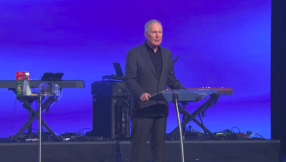
University students are attending chapel services at a higher rate than the rest of the population, challenging the notion that young people aren't interested in church.
Fifty-four Anglican college chapels across Durham University, Oxford and Cambridge were surveyed by the Church of England, with data being received from 40 of them — four at Durham, 19 at Oxford and 17 at Cambridge, The Times reports.
The figures showed that there were twice as many students making their way to chapel on Sunday than there were adults in the rest of the population attending services at regular churches.
According to the survey, some 1,388 students were attending Sunday services across the 40 chapels, equating to 2.9 per cent of students studying at the universities when extrapolated across all 54 chapels.
That figure is far higher than the 1.3 per cent in the rest of the population attending weekly Church of England services.
The real number of students attending services will be higher, though, as the figures are limited to university chapel attendance and do not include those students who choose to worship in local parish churches.
The Rev Professor Anthony Bash, chaplain of Durham's Hatfield College for the past 11 years, told the newspaper: "There is a significant increase in students asking about faith and spirituality within a more obviously academic, rather than confessional setting. They start with an academic question, asking what the New Testament says about the death of Jesus, and look for an academic answer, but [in] exploring that they explore their own faith."
Similarly, the Rev Canon Dr Simon Jones, chaplain of Merton College, Oxford, for the last 17 years, also believes he has seen an increase in students thinking about God.
"When I started, most students had decided before coming to university whether they were the sort of person who went to church," he said.
"But fewer under-18s now have had any contact with the church before. I have noticed a larger number of students open to the possibility of God."













